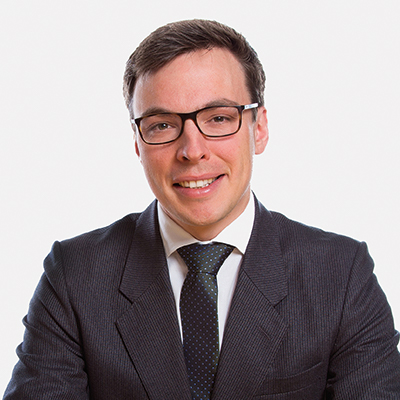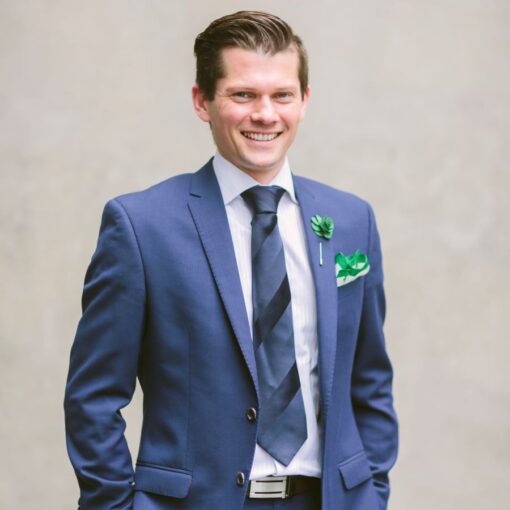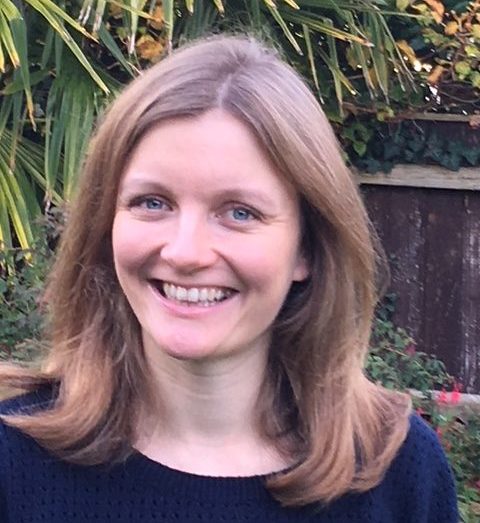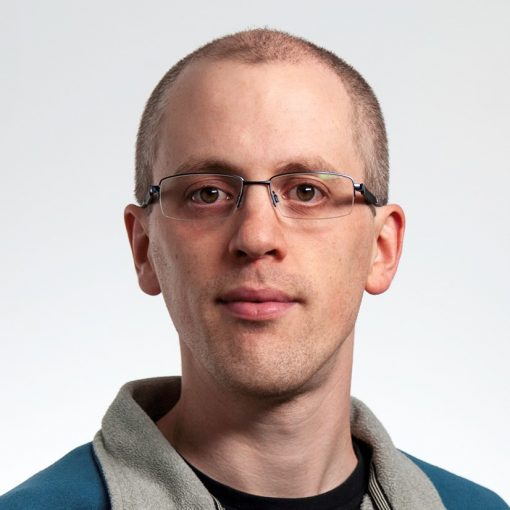PhD in Bioengineering, University of Southampton (2013)
| Technical Assistant | |
|---|---|
| D Young & Co. LLP | |
Job highlight: Making a successful argument to get a case to grant.
My research training set me up to… quickly cut to the heart of how something works, and work out how to explain it clearly.
What’s your background?
I moved from a Masters’ degree in Mechanical Engineering into a PhD, in which I developed 3D X-ray imaging techniques for biomaterials characterisation, applying computational methods to 3D images to understand material deformation and chemical dynamics. It was very multi-disciplinary work, using national synchrotron facilities, civil engineering and plant science laboratories, supercomputers, computer vision approaches, and mathematical modelling. After my PhD, I continued my research over 5 years of postdoctoral fellowships, including a tenure-track fellowship at the University of Southampton that balanced both research and teaching responsibilities.
Why did you move away from academia?
I became disillusioned with how thinly spread academics can become, juggling many responsibilities that don’t align with what attracted them to scientific research in the first place. Pressures to obtain funding and carry out administrative tasks can become virtually a full-time job, pushing the most rewarding aspects of work in science to the sidelines. I didn’t want to remain a postdoctoral researcher for the long term, and I realised it was unlikely I could stay in academia whilst also enjoying job security, a reasonable work / life balance, and the chance to engage every day with the cutting edge of technology and science.
Is there anything you miss about academia?
At its best, academia combines the joys of working with great people on fascinating problems using amazing facilities. I miss that ‘aha’ moment of a breakthrough when an experiment throws up some unexpected but important results, or when a method you’ve worked on for months finally clicks and opens up new possibilities. There’s something addictive about the feeling when things go right, which is probably what drives a lot of people to continue, even though most of the time progress is much more tortuous!
How did you get this job?
A friend already worked for my current firm, D Young & Co. He suggested if I ever fancied a move out of academia, then a role in intellectual property might be a good fit. When the time came to seriously consider that career change, he pointed me towards the Easter Internship that D Young & Co runs every year. Over three days, I learned enough about the profession and the firm to know I really wanted to make the move. After an additional few days of focused work experience with the firm, I was called for an interview, and shortly afterwards I was offered a position as a technical assistant.
Did you think you had the skills required for your current position before you started? Were you right?
I knew my experience in research had developed strong written and oral communication skills, and honed a tenacity at pursuing challenging problems. I knew I would need to readjust those skills to a different set of expectations and subject matter, but it turns out the fundamental skills of clear explanation and determination to resolve a complicated problem are key parts of a patent attorney’s day job.
Since every attorney comes into the profession from a STEM background, and many have spent years in PhDs and postdoctoral roles, the culture of an intellectual property firm can feel quite familiar to a university setting.
How did your PhD prepare you for your current job? For example, what were the transferable skills that you developed during your PhD that are most relevant to your current job?
Many aspects of a PhD student’s training are highly transferable to a role in patent law. For instance, quickly getting to grips with new literature is highly analogous to getting your head around a pile of prior art documents when preparing arguments for a case. The craft of clear, persuasive writing, developed in writing papers and / or a thesis, are foundational to the written argumentation that forms much of an attorney’s working day. Responding persuasively to reviewer comments on journal submissions is not dissimilar to responding to a patent examiner’s objections to a client’s patent application. The skill of managing a personal workload without a large amount of oversight, which PhD students must quickly develop, is good preparation for prioritising and efficiently working through a caseload. In short, since both PhD research and work as a patent attorney revolve around critical reasoning and communication, many skills translate well between the two.
Did you have any preconceptions about your sector that proved to be wrong?
Work in a commercial law setting has a certain reputation. Watching legal procedurals can give an impression that practicing law is inseparable from appalling work-life balance and ethically shady dealings. However, intellectual property is a very distinctive area of the law, which has its own culture and ethos. Since every attorney comes into the profession from a STEM background, and many have spent years in PhDs and postdoctoral roles, the culture of an intellectual property firm can feel quite familiar to a university setting. Integrity and sound reasoning are highly prized, and the work-life balance, with fairly predictable hours, is a welcome change from academia.
Can you describe a typical week in your job?
I am generally involved in drafting and prosecuting patent applications. Writing a new patent application is a process not dissimilar to writing a technical paper. Following a meeting with one or more inventors, I will seek to describe their inventive concept in appropriate detail, using example implementations, and applying knowledge of the law to provide the best possible scope of protection for the idea. This involves a lot of writing and it is not uncommon to churn out a few dozen pages within a couple of days. Prosecution is the process of getting an application to grant before a patent office, and requires responding to the examiners’ objections, making arguments in support of your client’s invention and amending their application if necessary to differentiate it from pre-existing inventions. These two activities account for around 80% of my time. The remaining hours in the week are spent on activities such as portfolio management, which involves keeping an overview of a client’s pending and granted patents and providing appropriate legal and technical advice in line with their commercial strategy. Trainee attorneys also travel occasionally, usually either to visit inventors or to represent clients in oral hearings at the European Patent Office. I generally work 9 to 5, though an occasional tight deadline can mean shifting hours around or working later once in a while.
What’s the workplace culture like?
The workplace is friendly and diverse, and good work is well rewarded. The firm cares about employees and seeks to make sure we are well looked after, particularly through good mentoring. There are a number of benefits and incentives to reward commitment and advancement. Though a lot of each day is spent lone working, the attorney’s role is supported by a network of paralegals and other administrative staff, and there is a sense of everyone pulling together to get the job done. There’s also a refreshing lack of overt competitiveness amongst peers and a strong sense of solidarity among trainees, with a good social scene.
What are your favourite parts of your job?
I love having the opportunity to craft arguments day in and day out. It is intellectually unrelenting, but offers constant opportunity to hone a potent skill; the ability to quickly analyse a situation and identify both the strongest lines of argument, and the best way to present them. Because this is done against the context of a constantly changing set of technologies, every day brings the opportunity to learn new things and stay abreast of the latest developments. The feeling of finishing up an argument and knowing you’ve done the best you can is very satisfying. I also appreciate the turnover of work being more rapid than in academia. Most tasks can be done in a few hours to a few days, start to finish, and so it’s uncommon to get bogged down as so easily happens in a long and potentially open-ended research project.
I love having the opportunity to craft arguments day in and day out. It is intellectually unrelenting, but offers constant opportunity to hone a potent skill; the ability to quickly analyse a situation and identify both the strongest lines of argument, and the best way to present them.
What are your reflections on your (future) career path?
I know there are hurdles ahead, not least passing the remaining qualifying exams, which are notoriously challenging to prepare for and pass. But I also know the support from the firm and from peers is excellent, and at every step there are strong incentives to reach the next stage in qualification and professional development. Unlike academia, where it was not at all clear how extra effort would feed into your career aspirations, the route to greater responsibility and opportunity in the IP profession is far clearer and better mapped out. Though there are things I miss about my academic life, I know that in this new path I will never stop learning and being able to use my skills for tangible benefit every day.
Do you have any advice for current graduate students and postdocs considering a career outside of academia?
Academic institutions, unsurprisingly, can strongly institutionalise those who work in them. At best, this provides a highly rewarding sense of belonging and of working for the common good of an organisation you feel highly invested in. But the flip side is that it can become very difficult for academics to imagine life outside the university. Many people never feel able to seriously pursue other options, because of fear and / or lack of awareness about how life outside the institution would look. For this reason, internships and work experience, such as those offered by D Young & Co are an excellent and low-risk way to ‘try on for size’ a career outside the academy. A few days of holiday can be used to get a first-hand picture which can, as in my case, provide the confidence I needed to turn a hunch about a career change into a reality.
Can you recommend any relevant resources, organisations or events that might help somebody new to the sector find out more about it?
https://ipcareers.co.uk/career-advice/ has an ‘employee profiles’ section which gives a lot of first-hand experiences of life at different stages of training and working as a patent attorney. Large IP firms usually have a presence at careers fairs on university campuses. Even if you’re a postgraduate or postdoc, heading to an undergraduate STEM careers fair will usually offer the chance to speak to at least one or two firms and ask about any internship or similar opportunities they have available.
 D Young & Co is a leading top-tier European intellectual property firm. Our reputation for excellence is recognised worldwide and we continue to be ranked as a top tier UK IP firm across all major UK directories. We have 200+ dedicated staff (including partners, fee earners, paralegals, secretaries and operations specialists) who are located in our offices in London, Munich and Southampton. Our clients are located around the world and across a wide range of industries spanning many sectors. They include blue chip and global organisations, research and academic institutions and SMEs. We hold dear our culture of work life fit, through which we are able to succeed at a personal level and provide the very best service for our clients. Whether your lifestyle leads you to want a city environment, a coastal location or a country life, you can fully harness your potential by joining a firm that offers a top tier full IP law service.
D Young & Co is a leading top-tier European intellectual property firm. Our reputation for excellence is recognised worldwide and we continue to be ranked as a top tier UK IP firm across all major UK directories. We have 200+ dedicated staff (including partners, fee earners, paralegals, secretaries and operations specialists) who are located in our offices in London, Munich and Southampton. Our clients are located around the world and across a wide range of industries spanning many sectors. They include blue chip and global organisations, research and academic institutions and SMEs. We hold dear our culture of work life fit, through which we are able to succeed at a personal level and provide the very best service for our clients. Whether your lifestyle leads you to want a city environment, a coastal location or a country life, you can fully harness your potential by joining a firm that offers a top tier full IP law service.
Please visit https://www.dyoung.com/en/careers for further information about working for D Young & Co and a list of our current vacancies.





